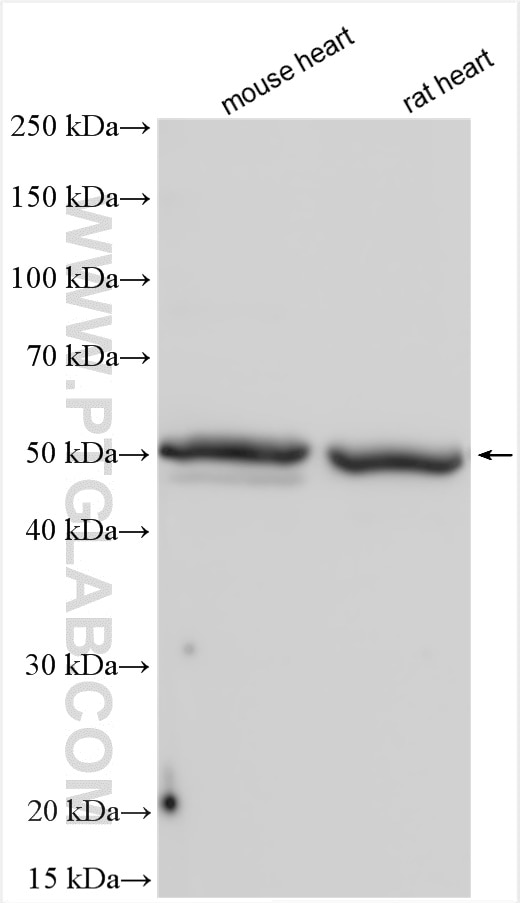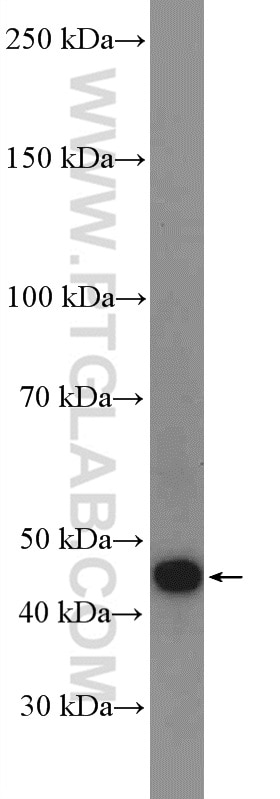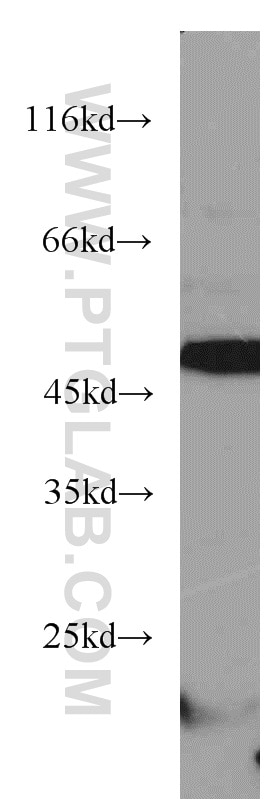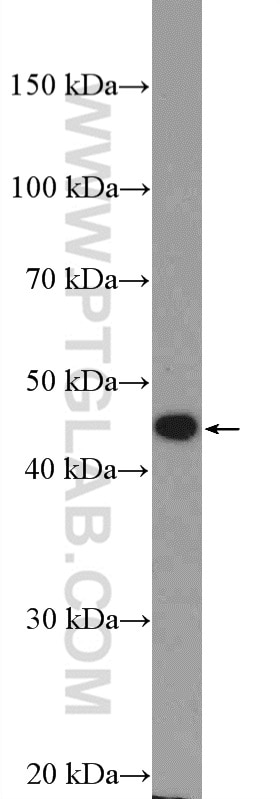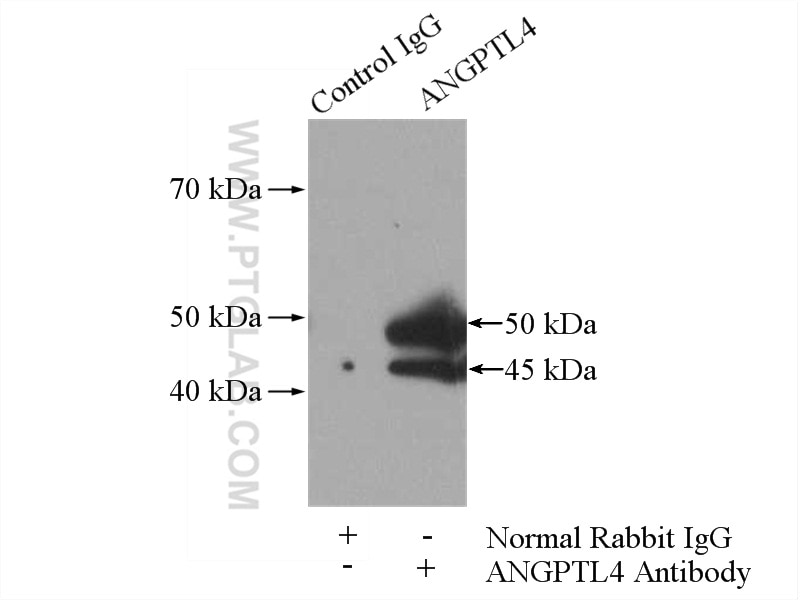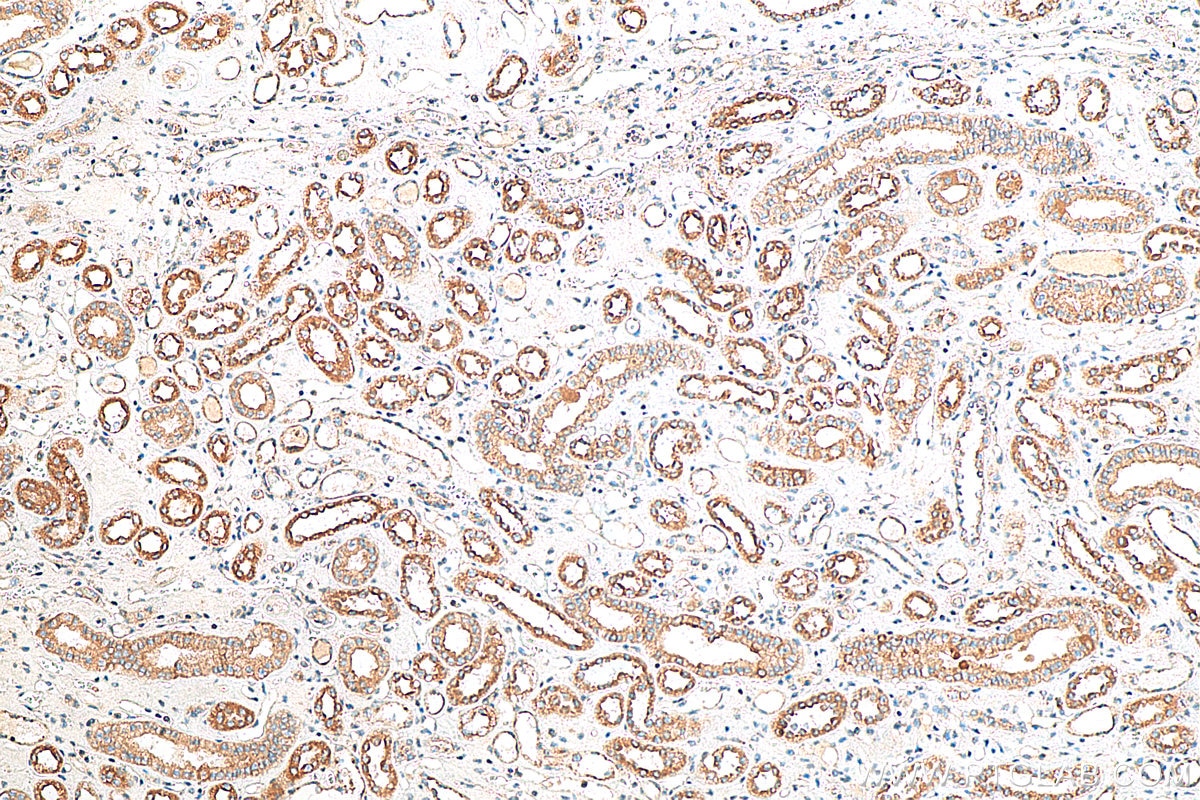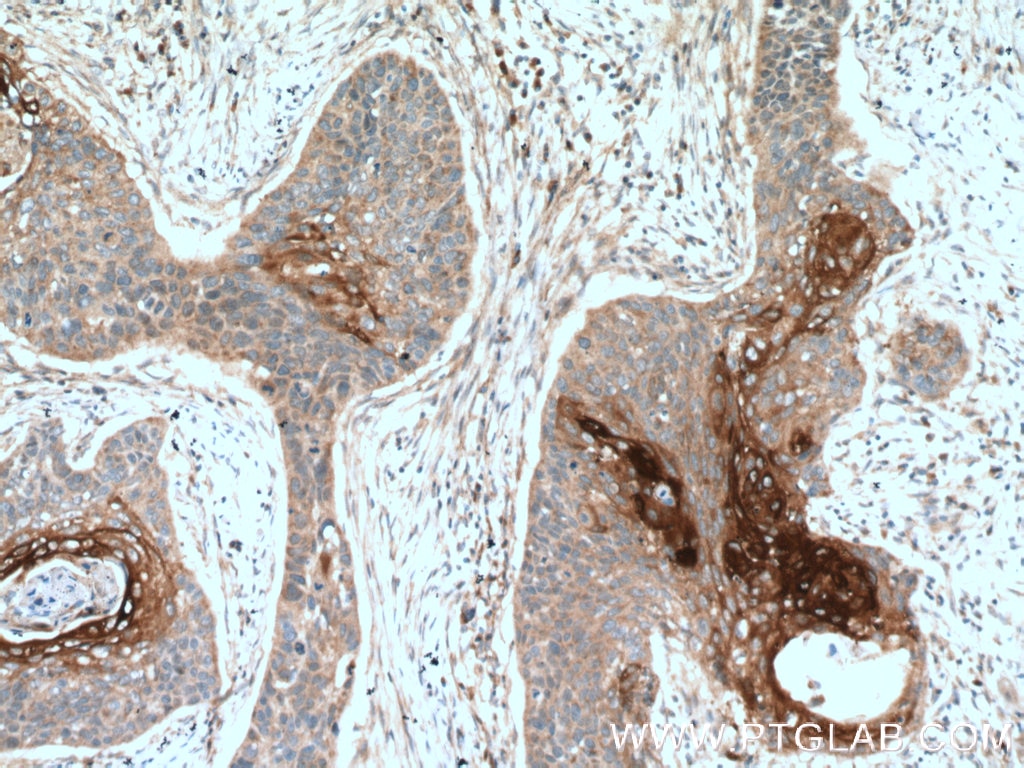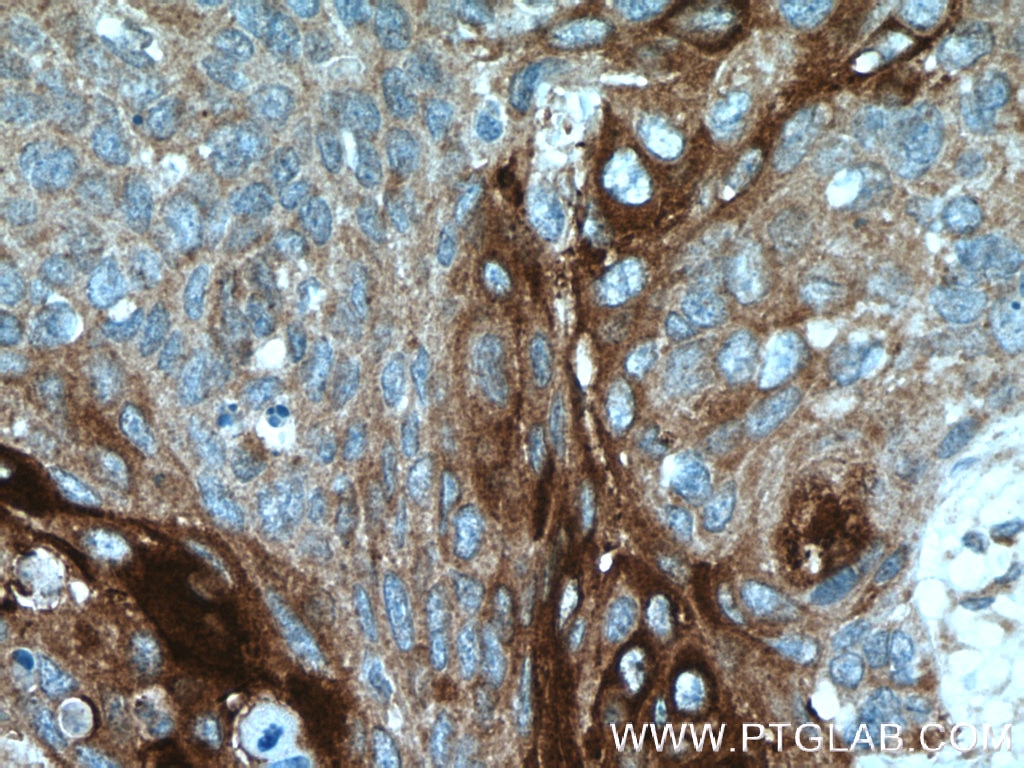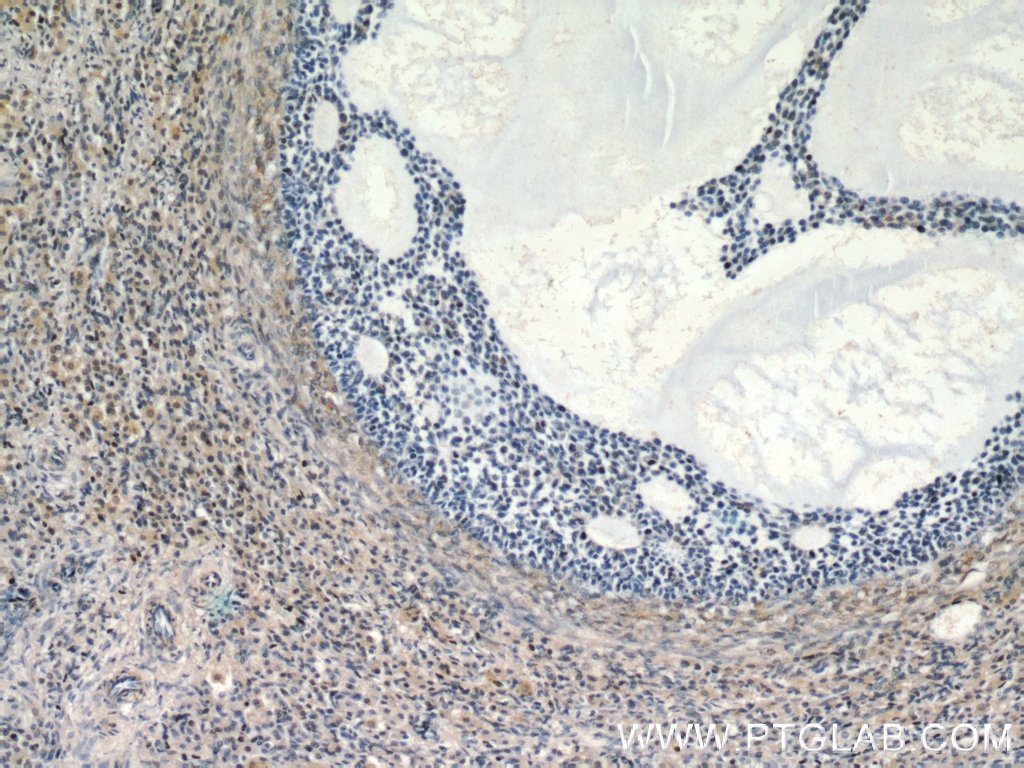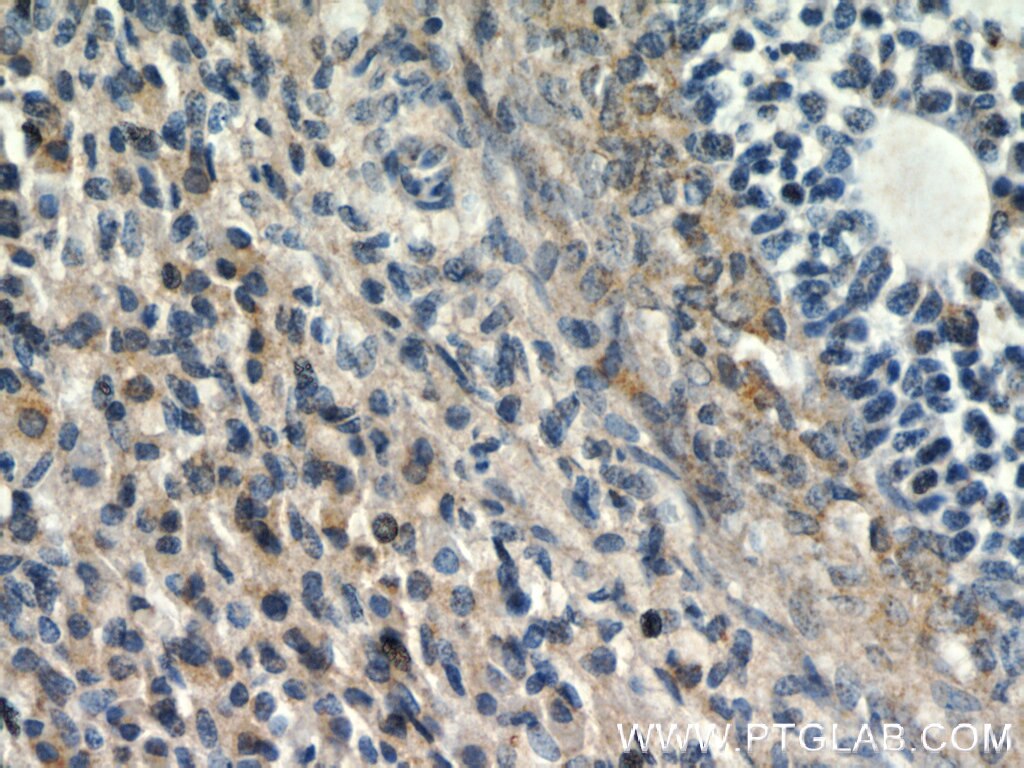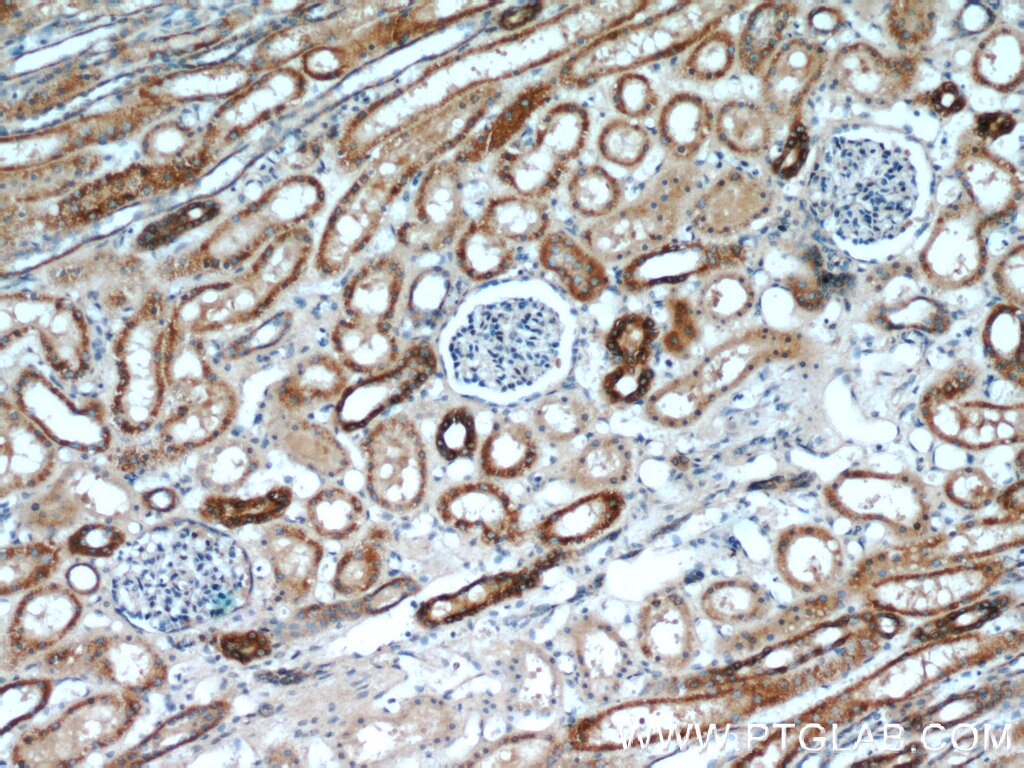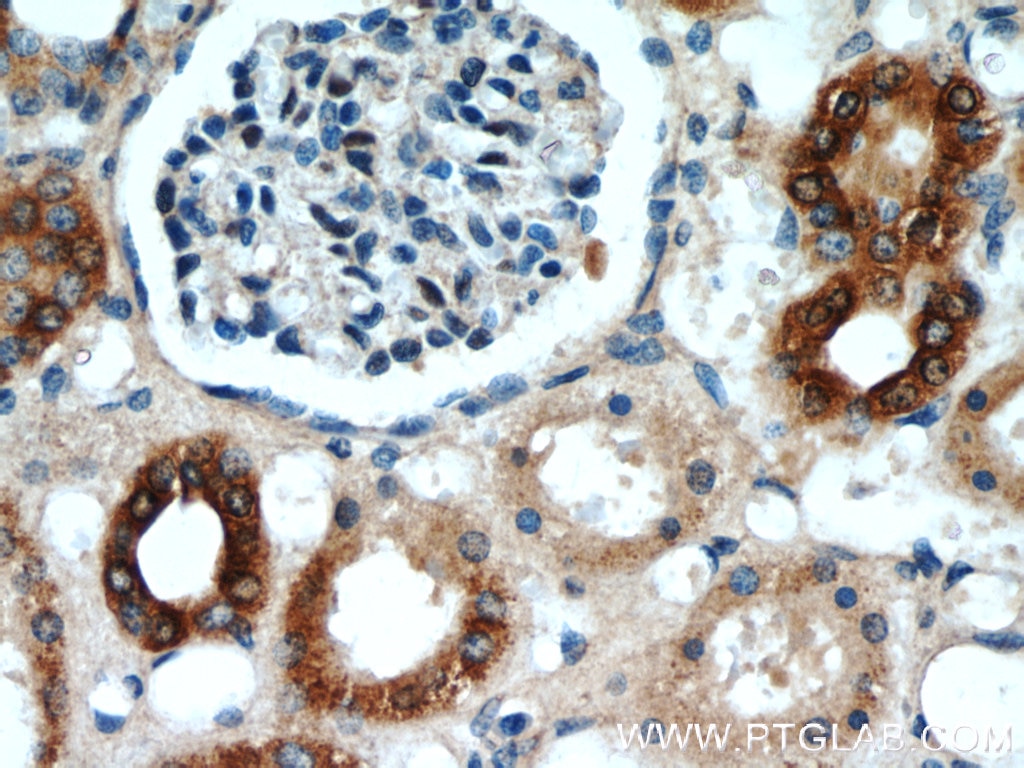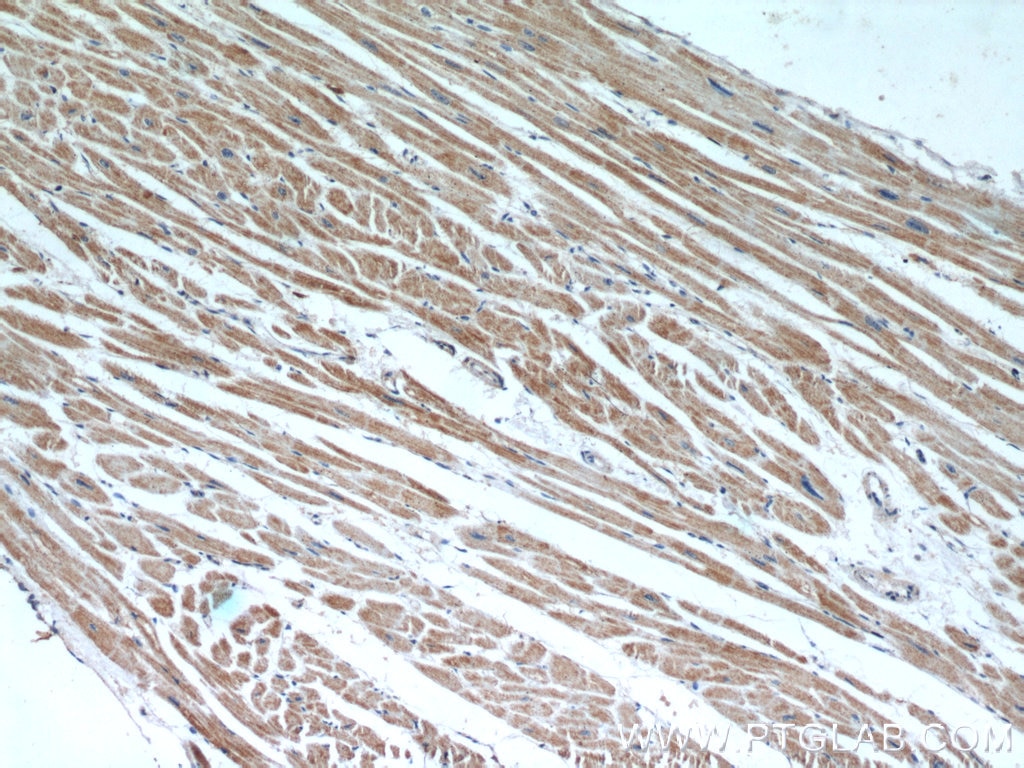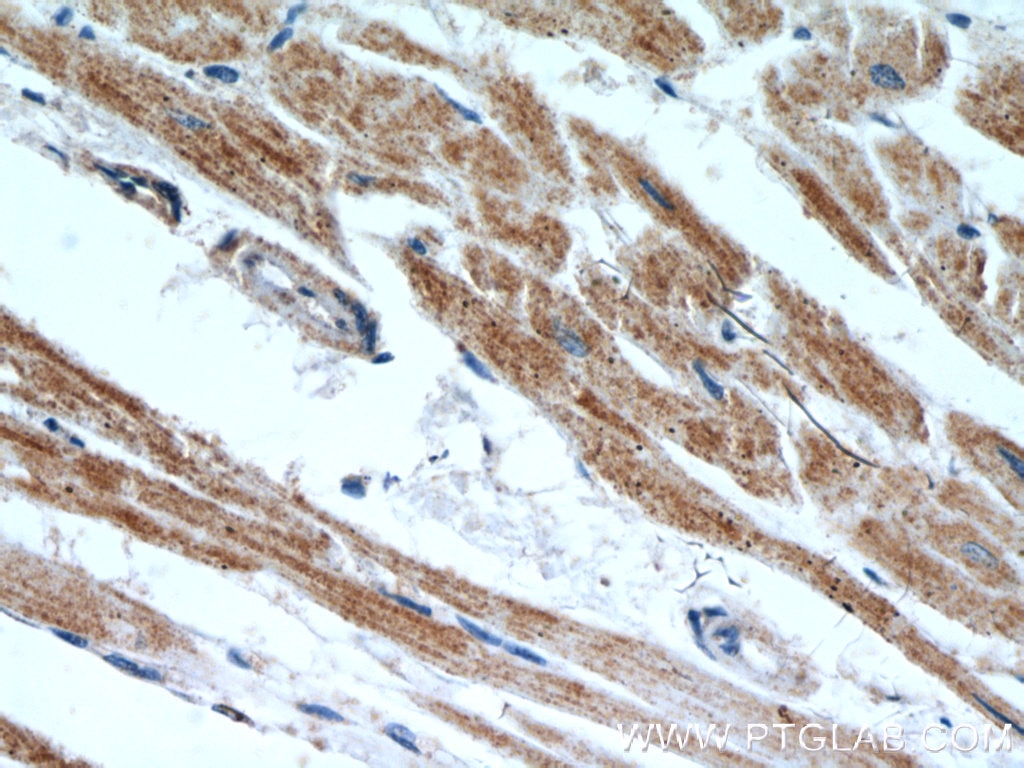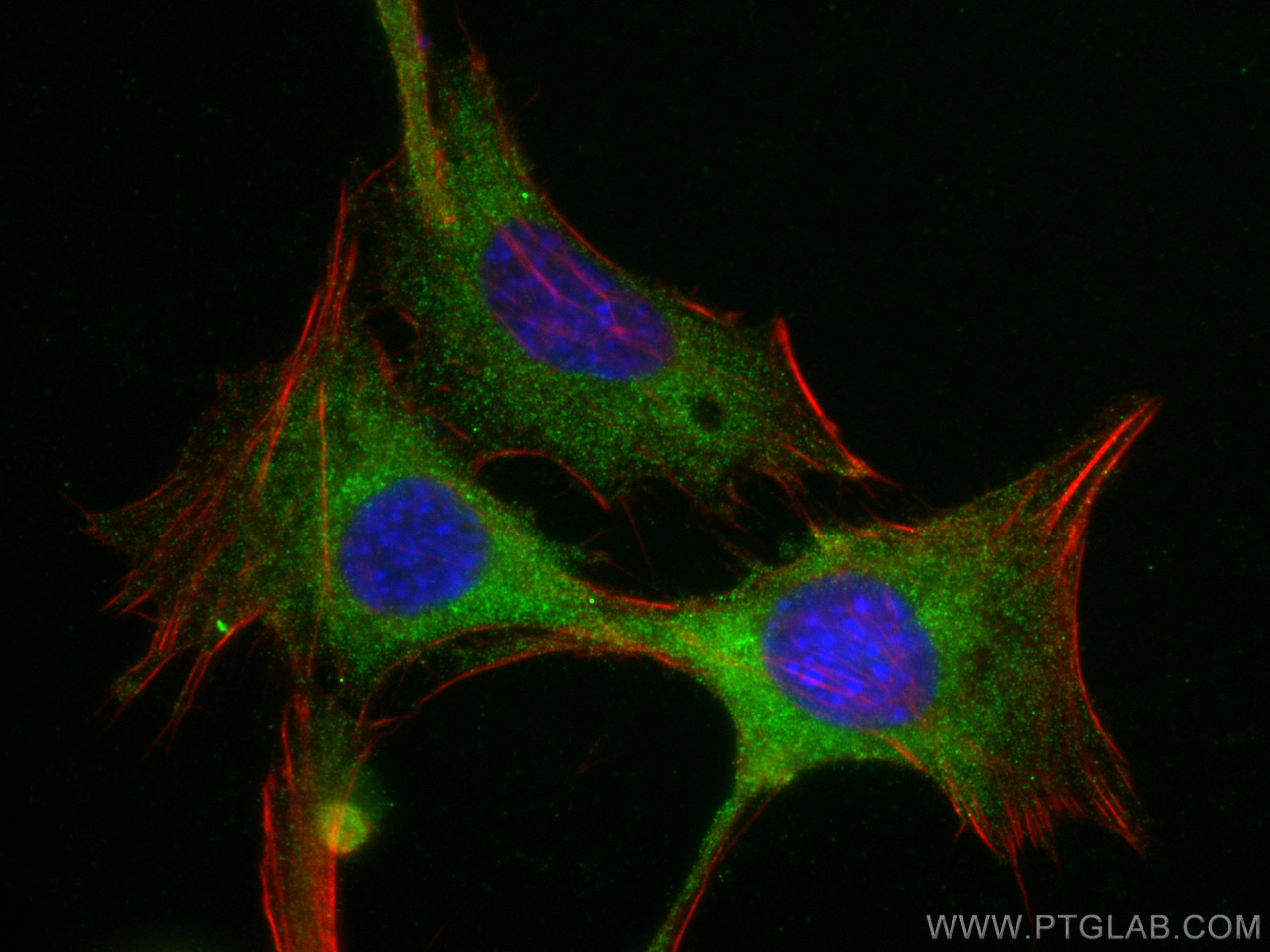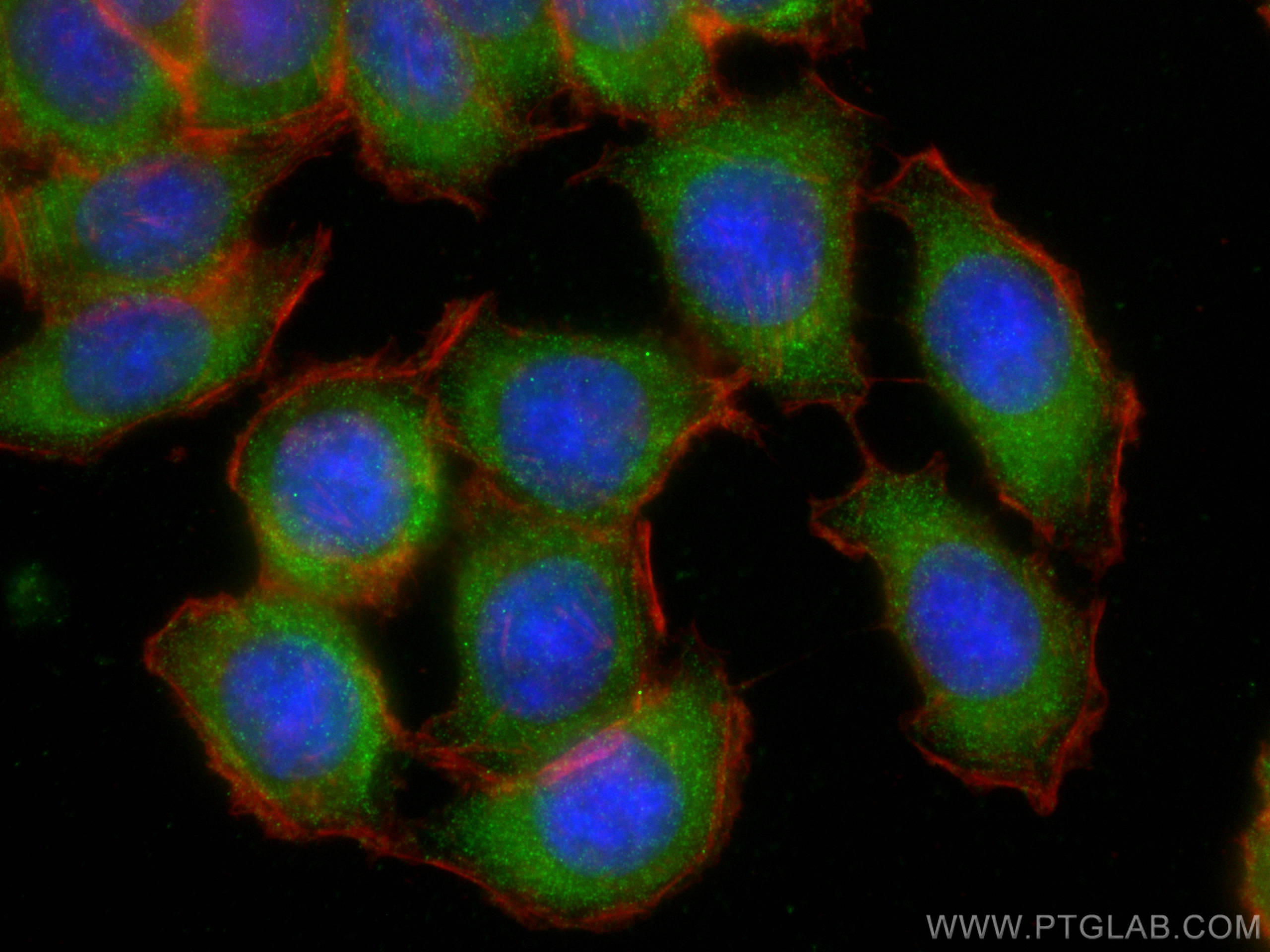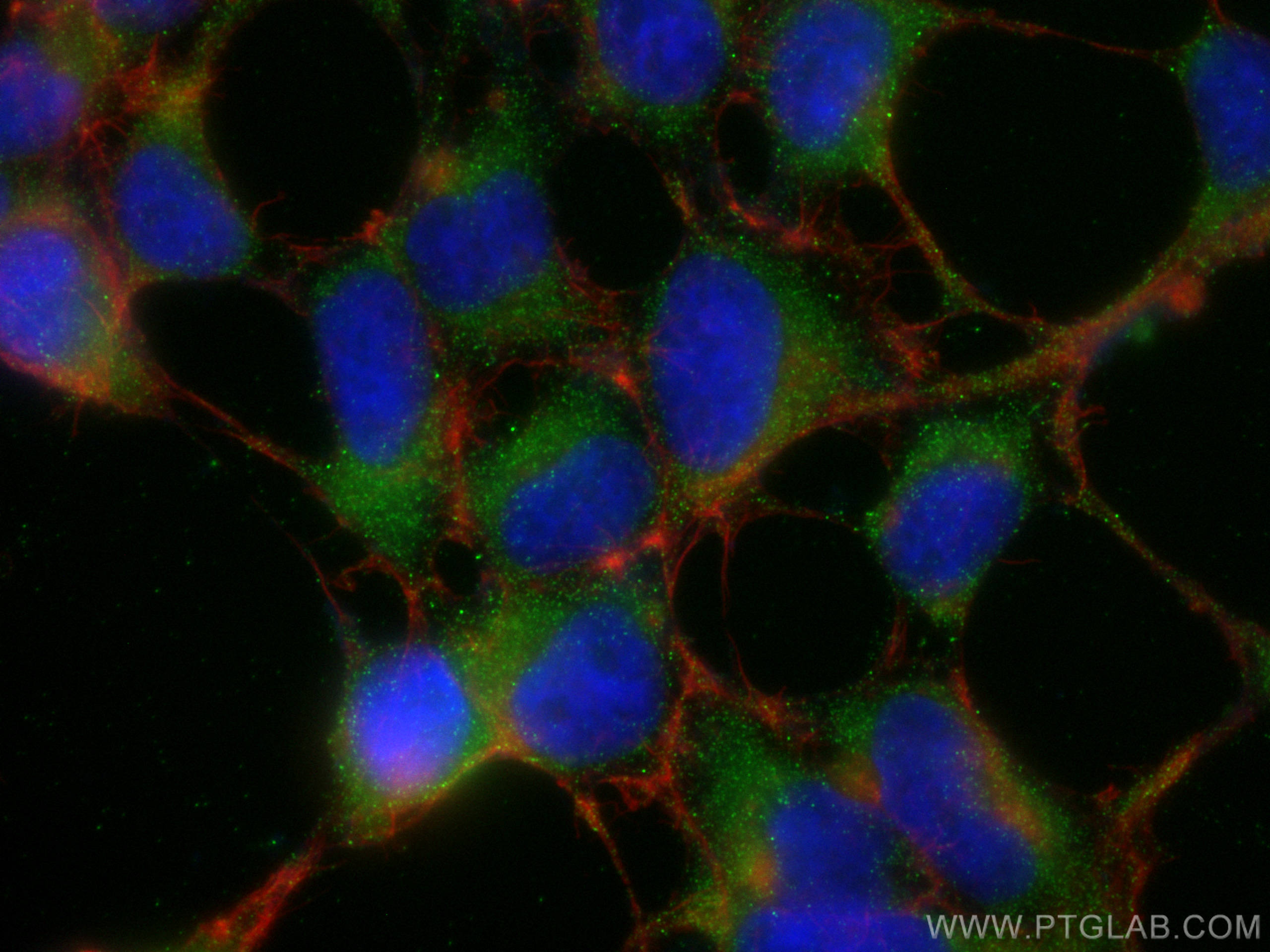Validation Data Gallery
Tested Applications
| Positive WB detected in | mouse heart tissue, mouse kidney tissue, HEK-293 cells, rat heart tissue |
| Positive IP detected in | mouse heart tissue |
| Positive IHC detected in | human kidney tissue, human oesophagus cancer tissue, human heart tissue, human ovary tissue Note: suggested antigen retrieval with TE buffer pH 9.0; (*) Alternatively, antigen retrieval may be performed with citrate buffer pH 6.0 |
| Positive IF/ICC detected in | NIH/3T3 cells, HT-29 cells, HEK-293 cells |
Recommended dilution
| Application | Dilution |
|---|---|
| Western Blot (WB) | WB : 1:500-1:1000 |
| Immunoprecipitation (IP) | IP : 0.5-4.0 ug for 1.0-3.0 mg of total protein lysate |
| Immunohistochemistry (IHC) | IHC : 1:50-1:500 |
| Immunofluorescence (IF)/ICC | IF/ICC : 1:50-1:500 |
| It is recommended that this reagent should be titrated in each testing system to obtain optimal results. | |
| Sample-dependent, Check data in validation data gallery. | |
Published Applications
| KD/KO | See 8 publications below |
| WB | See 29 publications below |
| IHC | See 19 publications below |
| IF | See 9 publications below |
| IP | See 1 publications below |
Product Information
18374-1-AP targets ANGPTL4 in WB, IHC, IF/ICC, IP, ELISA applications and shows reactivity with human, mouse, rat samples.
| Tested Reactivity | human, mouse, rat |
| Cited Reactivity | human, mouse, rat |
| Host / Isotype | Rabbit / IgG |
| Class | Polyclonal |
| Type | Antibody |
| Immunogen |
CatNo: Ag13237 Product name: Recombinant human ANGPTL4 protein Source: e coli.-derived, PKG Tag: GST Domain: 1-374 aa of BC023647 Sequence: MSGAPTAGAALMLCAATAVLLSAQGGPVQSKSPRFASWDEMNVLAHGLLQLGQGLREHAERTRSQLSALERRLSACGSACQGTEGSTDLPLAPESRVDPEVLHSLQTQLKAQNSRIQQLFHKVAQQQRHLEKQHLRIQHLQSQFGLLDHKHLDHEVAKPARRKRLPEMAQPVDPAHNVSRLHRLPRDCQELFQVGERQSGLFEIQPQGSPPFLVNCKMTSDGGWTVIQRRHDGSVDFNRPWEAYKAGFGDPHGEFWLGLEKVHSITGDRNSRLAVQLRDWDGNAELLQFSVHLGGEDTAYSLQLTAPVAGQLGATTVPPSGLSVPFSTWDQDHDLRRDKNCAKSLSGGWWFGTCSHSNLNGQYFRSIPQQRQKL 相同性解析による交差性が予測される生物種 |
| Full Name | angiopoietin-like 4 |
| Calculated molecular weight | 45 kDa |
| Observed molecular weight | 45-50 kDa |
| GenBank accession number | BC023647 |
| Gene Symbol | ANGPTL4 |
| Gene ID (NCBI) | 51129 |
| RRID | AB_2878539 |
| Conjugate | Unconjugated |
| Form | |
| Form | Liquid |
| Purification Method | Antigen affinity purification |
| UNIPROT ID | Q9BY76 |
| Storage Buffer | PBS with 0.02% sodium azide and 50% glycerol{{ptg:BufferTemp}}7.3 |
| Storage Conditions | Store at -20°C. Stable for one year after shipment. Aliquoting is unnecessary for -20oC storage. |
Background Information
Angiopoietin-like protein 4 (ANGPTL4), a member of the angiopoietin-like protein subfamily, is a secretory protein that functions as an important modulator of glucose and lipid metabolism. ANGPTL4 inhibits lipoprotein lipase (LPL)-dependent lipolysis thereby limiting the uptake of free fatty acids. Overexpression of ANGPTL4 results in hypertriglyceridemia, while ANGPTL4 deficiency suppresses foam formation in macrophages and protects against atherosclerosis. ANGPTL4 may play a role in several cancers and it also has been shown to prevent the metastatic process by inhibiting vascular activity as well as tumor cell motility and invasiveness. Decreased expression of this protein has been associated with type 2 diabetes. ANGPTL4 has three isoforms, 45 kDa, 41 kDa and 27 kDa.
Protocols
| Product Specific Protocols | |
|---|---|
| IF protocol for ANGPTL4 antibody 18374-1-AP | Download protocol |
| IHC protocol for ANGPTL4 antibody 18374-1-AP | Download protocol |
| IP protocol for ANGPTL4 antibody 18374-1-AP | Download protocol |
| WB protocol for ANGPTL4 antibody 18374-1-AP | Download protocol |
| Standard Protocols | |
|---|---|
| Click here to view our Standard Protocols |
Publications
| Species | Application | Title |
|---|---|---|
Nat Metab Resistant starch intake facilitates weight loss in humans by reshaping the gut microbiota | ||
J Hazard Mater Insight into perfluorooctanoic acid-induced impairment of mouse embryo implantation via single-cell RNA-seq | ||
J Clin Invest Angiopoietin-like 4 binds neuropilins and cooperates with VEGF to induce diabetic macular edema. | ||
J Pathol ANGPTL4-αvβ3 integrin interaction counteracts hypoxia-induced vascular permeability by modulating Src signalling downstream of VEGFR2. | ||
Breast Cancer Res An integrated genomic approach identifies persistent tumor suppressive effects of transforming growth factor-beta in human breast cancer. |

